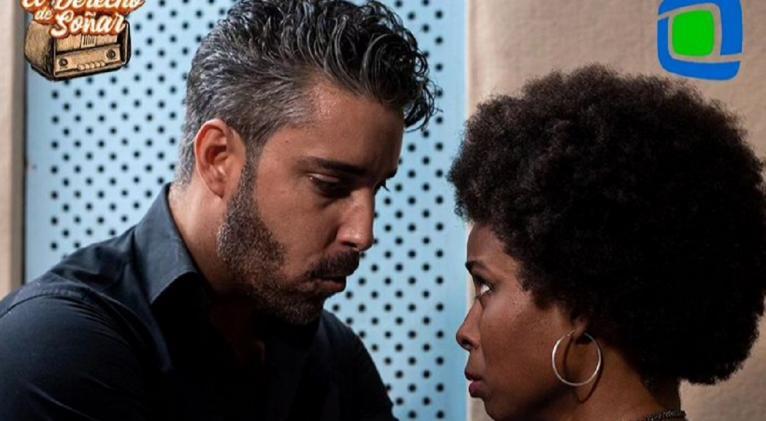The right to dream…and be grateful
especiales

Dedicating a soap opera to the radio, and to a large extent to the radio drama, is actually a righteous act, taking into consideration everything that this gigantic network that is now the television series owes to radio drama.
Engaging in the plot one of the greatest creators of national radio, the most emblematic of its authors, Félix B. Caignet, is also a gesture of gratitude. Caignet opened a path in Cuba that has consolidated as an identity brand of a culture, beyond specific debates about the artistic and social implications of the phenomenon.
For this reason, El Derecho a Soñar (The Right to Dream), the soap opera whose last episode was broadcast on Cubavision, deserves rounds of applause.
It is our view that the project has had some unfinished business, particularly in the realization of several of its plot lines.
Some of the characters’ motives and situations were forced or far-fetched: the writer who is incapable of dictating the chapters that she can no longer write; the adventures of the team that covered the great fire in a factory, an obvious recreation of the Matanzas tragedy; the lengthy and highlighted plot of the alleged guilt in the death of actress María Valero, with the emphatic and not entirely coherent reactions of some of the characters...
Perhaps the dramatic line was pushed too much, in pursuit of an impact that often ended up seeming sensationalist.
But the decisive commitment, uninhibited, to the everlasting formulas of a genre is plausible. Clearly, assuming the arsenal of melodrama, of the old soap opera, updating its codes in some way, has ultimately been a virtue.
And showcasing these resources according to pressing issues, of peculiar importance, has proven the relevance of a format, even when certain classic assumptions, such as the empathy of the main character, have been undermined.
We had already highlighted it before: the heroine of this soap opera was not the traditional, golden girl that everyone likes. She was a complex, contradictory character, who could be exasperated by her actions, often dominated by anger or even prejudice.
The character, like most of the roles in the soap opera, was very well defended, especially the emotional couple of Pipo and Muñeca. Nonetheless and at times, both characters were given too much prominence than they deserved, taking into account the real contribution both made to the evolution of the plot.
The soap opera sought to transcend mere functionality, especially in the first stage, in which careful work by the art direction was evident. The times always pose demands that must be met here with more creativity than money. In fact, the difference between the two times, in terms of the search for beauty, was notable.
The Right to Dream has come to an end, and was a clear tribute to the mythical The Right to Be Born and to all those who have made and still make radio in Cuba. The presence in several episodes of leading figures of that art in Cuba was significant and endearing, in a pact between fiction and reality that was generally well resolved.
The soap opera skirted around the dangers of propaganda when it came to honoring the immense legacy of radio, and enhanced the significance of that media outlet, beyond a setting or context.
Here we breathed love and commitment, which necessarily imply conflicts associated with daily professional practice and the journey of human relationships.
Translated by Sergio A. Paneque Díaz / CubaSí Translation Staff














Add new comment